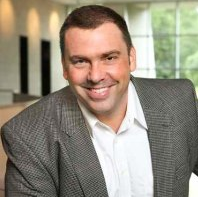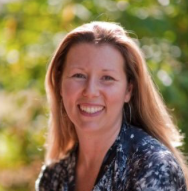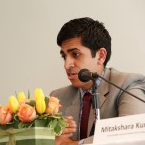How have professional skills & requirements for ethnographers and other human-centered researchers changed over the last 10 years—and where are they headed? How can you evaluate the confusing terrain of position titles and descriptions, as well as assess the organizations offering them? Post your questions, insights & ideas!
EPIC people gathered for an online discussion with Martha, Tracey, Gary & Abbas. Here are the introductions.
Introductions
Martha Cotton, Partner, gravitytank
 Back in the mid-90s when I was at eLab, researchers went through a brief period where our business cards said “Understander.” As a word, it fit to describe what I did for a living. But as a job title to communicate my role to others outside of my small ethnographer community, it was very hard to, well, understand. I have a memory of handing my business card to the store manager of a Boston area sporting goods store where I was to spend the day observing people shopping for backpacks. He took one looks at my card and said “Undastanda??!”
Back in the mid-90s when I was at eLab, researchers went through a brief period where our business cards said “Understander.” As a word, it fit to describe what I did for a living. But as a job title to communicate my role to others outside of my small ethnographer community, it was very hard to, well, understand. I have a memory of handing my business card to the store manager of a Boston area sporting goods store where I was to spend the day observing people shopping for backpacks. He took one looks at my card and said “Undastanda??!”
Fast forward a couple of decades and today I call myself a researcher on a team of researchers. But here’s the nuance: We are an innovation consultancy. To me, this suggests a lot about the kind of researchers we are, but to someone outside of our tiny little industry it means little.
The problem with job titles today is that they can’t adequately do the job of describing all the value one fills, or is expected to fill. I imagine this is the case with any industry, but for those of us in the EPIC community it is compounded by the fact that “research” can mean so many varied things in the job market.
Here’s my take: if a Researcher job title has the word “user” in it, it probably has something to do with technology/interfaces. If the job title has the word “consumer” in it, it probably means the work involves understanding how people consume (duh) stuff and/or media in one of a variety of industries (CPG, Consumer Electronics, Retail, F&B, Advertising, etc.). And of course there are many other job titles: Design Researcher, Human Factors Analyst, maybe even Ethnographer. In all of these jobs, ethnographic research will be but one of the many approaches used to fulfill the expectations of the role. And I suspect that in all of these there is a fair amount of explicit or implicit internal evangelizing about the value of ethnography.
In the end, eLab had it right. What we do for a living is Understand. The difference in the variety of job titles out there is in how that understanding is applied.
Martha’s career began at eLab in 1990s and has included leadership roles at Sapient, Hall & Partners, and HLB, working across a variety of industries as an applied ethnographer and business consultant. She’s also adjunct faculty at Northwestern’s Kellogg School of Management and the McCormick School of Engineering.
To respond or ask Martha a question on the EPx Forum this week: sign in or create a free account, then visit EPx Forum and click subscribe here
Gary Gebhardt, Associate Professor of Marketing, HEC Montréal
 Based on personal experiences in the workforce and currently when counselling students in their job searches, I consider job titles to be fairly useless and unhelpful. For example, I commonly refer to ken anderson as “the God of Ethnography at Intel” when he speaks to our EMBA students, just because it’s more informative than his real title, which seems to change regularly in spite of what he actually does day-to-day. The same has been true of every job I’ve ever had: my favourite being “senior consultant,” which I’ve had at three completely different consulting firms specializing in information technology, business-to-business marketing and innovation.
Based on personal experiences in the workforce and currently when counselling students in their job searches, I consider job titles to be fairly useless and unhelpful. For example, I commonly refer to ken anderson as “the God of Ethnography at Intel” when he speaks to our EMBA students, just because it’s more informative than his real title, which seems to change regularly in spite of what he actually does day-to-day. The same has been true of every job I’ve ever had: my favourite being “senior consultant,” which I’ve had at three completely different consulting firms specializing in information technology, business-to-business marketing and innovation.
Job titles are socially-constructed shorthand that only have meaning within the organization that created and uses them. Oftentimes, even people with an organization don’t know what their colleagues do based on their job titles. Realistically, you need to look beyond the job title to the description of responsibilities and qualifications.
If forced to give advice on looking for a job, here are my attempts to be helpful:
- If you manage to see a job advertised that says “anthropologist” or “ethnographer” – go for it! Apply! (That was easy!)
- Figure out what you like to do and look for job descriptions that would fit that. I am guessing that “anthropologist” is as rare to find in a job title as “mathematician” or “sociologist.” You need to read the job description to find out if there might be a fit among your skills, your desires, and the potential employer’s work.
- Be sure that your résumé reflects what you can do in neutral language. Paraphrasing Howard Becker, skip the “fancy talk.” For example, don’t ever say that you can do “coaxial coding of depth interviews.” Instead, turn that into normal language. Perhaps, “I am able to conduct depth interviews with customers, channels and partners to uncover shared themes and business opportunities.” The challenge is to communicate what you can bring to the company/organization in terms meaningful relative to them accomplishing their goals.
- Ask everyone you meet what they do and listen, regardless if you think they may have a job for you or not. You never know! And, more importantly, most people will (obviously) ask you what you do or would like to do – which is your chance to advertise yourself and get another person to help you find a job. Never sit next to a person whom you don’t know and let it pass – especially on a plane!
- Although I hate to admit this, who you know does matter in getting your foot in the door – so network! See point #4. You don’t need to ask people for jobs, just ask them what they do. For those people that you already know, ask them if they have any ideas of companies or organizations in which your skills might be a good fit.
Finally, keep in mind that finding a job is like dating or selling, which include the following steps:
- Get noticed. This means being very direct and clear about what you want, particularly in your cover letter. However, don’t be too specific or narrow in your résumé. This is particularly true for applying to advertisements. Some poor soul in Human Resources has to review 100 cover letters and applications to winnow them down to the highest potential applicants. Your goal is to get into the “next step pile.” Too much bullshit or text will doom your chances. Also, a well written cover letter and a tight, clear résumé give the HR person a chance to identify another job that might be a great fit for you.
- Get a meeting (interview). Your #1 goal is to get to a phone or in-person meeting in which you can discuss your common interests.
- Do consultative selling. Hiring you has to solve some problem for the organization. It’s your job to find out what that problem is and how your skills can solve that problem. So be sure to listen for opportunities that your skills can solve and position yourself relative to those problems. If you can bring value to the organization, you will stand out!
- Make sure to listen to what everyone you meet at an organization does, ask them what are the organization’s challenges and then suggest ways in which you may be able to help (as a team member).
- Be yourself. Too many people (including some of my students) start by trying to change themselves to be what the organization is looking for. The problems with trying to be who you are not include: you may be hired, but you’ll be miserable; you won’t be able to meet expectations and you’ll be fired; and it’s just exhausting! If you are NOT a good fit, tell the organization that and suggest others who might be a good fit. It’s amazing how much a selfless act can pay off long-term. (Note that I always say “look for a good fit.” It’s on purpose. A misfit in skills, workload, personalities, or organizational culture will make everyone miserable and life is too short for that.)
- Finally, remember that each interaction is “just a date.” In other words, don’t worry about whether a job is exactly what you want or whether you will be the best fit possible until it’s clear. Too often people are afraid to apply for a job because it requires “too much experience” or “five things, but I only have four.” Every job posting is for a unicorn. Seriously. It is the “ideal candidate,” which organizations almost never find. Hence, overapply. You can admit that you are not an exact fit for the job description, but explain in the cover letter why you might be a good fit. Also, don’t exclude applying to any organization that posts an interesting job. You never know.
So, to summarize, job titles are socially-constructed shorthand that only apply to the organization to which you are applying. You can’t look for jobs based on job titles. Look at the descriptions of what’s involved and see if it’s something that you would like to do – then apply. Ask everyone what they do. Ask every person what their greatest work challenges are and see if there is something that you can do. Network! Apply! Sell yourself as a solution to a problem, not as an anthropologist or ethnographer.
Gary worked as a consultant & executive in industry before earning a PhD at Northwestern’s Kellogg School of Management. He now teaches in HEC Montréal’s MBA, EMBA, and MSc programs and is co-author of the book Resurgence: The Four Stages of Market-Focused Reinvention.
To respond or ask Gary a question on the EPx Forum this week: sign in or create a free account, then visit EPx Forum and click subscribe here
Tracey Lovejoy, Executive Coach & Leadership Consultant / Founder, Lovejoy Consulting
 My perspective of jobs for ethnographic professionals is situated within the world of product design at Microsoft, where I worked for 12 years. I remember in the early 2000s there was a belief that anthropology would be deeply rooted within business by this point. At Microsoft, ethnographic specific roles have really struggled to take root, despite starting to employ practitioners around that time. Rather ethnography still remains a method that can be claimed by anyone with research training. In part this is because there is no clear way to fit an “ethnographer” into the full product cycle. Someone who specializes in deeply examining the broad questions that help uncover new opportunities or rethink an existing product may not have a clear role as the product moves out of conceptualization and into iteration and execution. So many of us adopted the title of UX Researcher or Design Researcher and geeked out during the moments we could focus on qualitative work, then used our skills to answer a different set of questions with different methods for the remainder of the product cycle, always on the lookout for a question that would allow us to get back into the field.
My perspective of jobs for ethnographic professionals is situated within the world of product design at Microsoft, where I worked for 12 years. I remember in the early 2000s there was a belief that anthropology would be deeply rooted within business by this point. At Microsoft, ethnographic specific roles have really struggled to take root, despite starting to employ practitioners around that time. Rather ethnography still remains a method that can be claimed by anyone with research training. In part this is because there is no clear way to fit an “ethnographer” into the full product cycle. Someone who specializes in deeply examining the broad questions that help uncover new opportunities or rethink an existing product may not have a clear role as the product moves out of conceptualization and into iteration and execution. So many of us adopted the title of UX Researcher or Design Researcher and geeked out during the moments we could focus on qualitative work, then used our skills to answer a different set of questions with different methods for the remainder of the product cycle, always on the lookout for a question that would allow us to get back into the field.
That being said, there was always a role for me where I could celebrate my inner ethno geek. I moved to teams that were forward looking – such as next cycle advance teams, labs and incubation teams. I also had a year where I ran both a front end team and a Design Research team and I was able to fluidly integrate both types of research like an orchestra conductor. It worked amazingly, but was at the mercy of my relationship with the head of engineering who saw the value – it was in no way embedded within the Microsoft culture.
When I broaden this experience to the greater product design field it can still be difficult to find jobs listings for ethnographers, corporate anthropologists or qualitative researchers – although there definitely are some. Rather I find that ethnography is embedded within broader research positions, and you have to talk to the hiring manager or team to understand how welcome your ethnographic leaning will be. In some companies it will be essential. And at others it will be an uphill battle to do any kind of field work. And for those roles that specifically want an ethnographer, the team or company may not actually know how to integrate you into their rhythm so you will need to use your ethnographic training to study their culture and make recommendations on how you can best be leveraged – which is a deeply gratifying and career expanding exercise no matter what! Can’t wait for more conversation!
Tracey is an executive coach and leadership consultant specializing in team effectiveness and organizational health. She’s also co-founder of EPIC and co-founder of UX Careers, and was a pioneering corporate anthropologist and design professional at Microsoft.
To respond or ask Tracey a question on the EPx Forum this week: sign in or create a free account, then visit EPx Forum and click subscribe here
Abbas Jaffer, Digital Anthropologist/Harvard
 Since the first year of my doctorate, I’ve poked around job boards and trying to find internships in user and experience design research. I made it to many interviews but never secured a position—independent engagements have been my way in. What I learned from my repeated failures in those early years is that just because a job title says ethnographer or lists anthropology training as desirable does not mean the team hiring necessarily has experience with people from our background. My hard-won lesson: always put the value you bring to a firm in plain, jargon-free language and meet or exceed their business objectives with your work. Learn what those are by a) online sleuthing and b) humbly asking.
Since the first year of my doctorate, I’ve poked around job boards and trying to find internships in user and experience design research. I made it to many interviews but never secured a position—independent engagements have been my way in. What I learned from my repeated failures in those early years is that just because a job title says ethnographer or lists anthropology training as desirable does not mean the team hiring necessarily has experience with people from our background. My hard-won lesson: always put the value you bring to a firm in plain, jargon-free language and meet or exceed their business objectives with your work. Learn what those are by a) online sleuthing and b) humbly asking.
In conversations with mentors and colleagues I’ve noted two trends in hiring. One is a misguided attempt by firms to hire for double-duty in the human sciences and data science or engineering (you could say the mythical M-shaped employee), and the other one is positive; research consultancies are embracing and recruiting around ethnographic methods. The key tension in both is the stretching of job roles to cover an increasing number of functions. “Job title and function subject to change” is not necessarily a bad thing but it is the new normal. My guess is another emerging trend will be more thorough ‘localization’ of products and services beyond language support, so widely publicize and promote your international experience!
As I have worked on independent engagements and look for the right opportunities moving forward, I have a couple of diagnostic questions I use to evaluate job posting or contract offers. Do I get to do actual fieldwork with customers, learning how my clients can help alleviate their everyday frustrations or inspire them? How ‘flat’ is the research team and how open to experimenting with methods, reporting and open to challenging negative norms within their corporate culture?
Abbas is an ethnographer with research experience in the private and non-profit sectors. He’s on the verge of completing his PhD in Social Anthropology at Harvard, and he’s the driving force behind the new EPIC EPx Forum.
To respond or ask Abbas a question on the EPx Forum this week: sign in or create a free account, then visit EPx Forum and click subscribe here

0 Comments